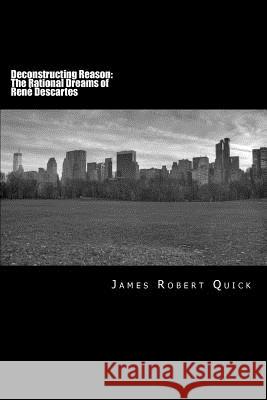Deconstructing Reason: The Rational Dreams of René Descartes » książka
Deconstructing Reason: The Rational Dreams of René Descartes
ISBN-13: 9781481292573 / Angielski / Miękka / 2013 / 150 str.
With the 1641 publication of Rene Descartes' "Meditationes de Prima Philosophiae," in its inexorable movement toward the exclusion of dreams, modern philosophy reaches a moment in the ultimate paragraph of the sixth "Meditation" where at last it is able to sleep at night, unhindered by the disruptions of the dream, certain it has exceeded the bounds of the preceding philosophical epoch. Should we choose to take Descartes at his word, modernity has arrived on the scene of philosophy in the guise of an awakening of philosophy's reason from a long slumber of uncertain dreams. If any event in the history of modern philosophy should continue to concern us today, as philosophy rewrites its relation to modernity under the influence of postmodernism, it is the moment in the "Meditations on First Philosophy" when Cartesian reason, in order to "become" Cartesian reason, both encounters and overcomes the dream, the moment when modern philosophy awakens. Here, we are witness to the singular event of philosophy's attempt to awaken itself "as reason." At philosophy's inception within "and as" the discourse of modernity, it has finally succeeded in excluding the dream from the reasonable discourse of philosophy, thereafter confining the metaphysical and epistemological problems of philosophy to the enclosed terrain of "Reason." As if awaking from a dream, philosophy enters the modern age . . . ."
Zawartość książki może nie spełniać oczekiwań – reklamacje nie obejmują treści, która mogła nie być redakcyjnie ani merytorycznie opracowana.











